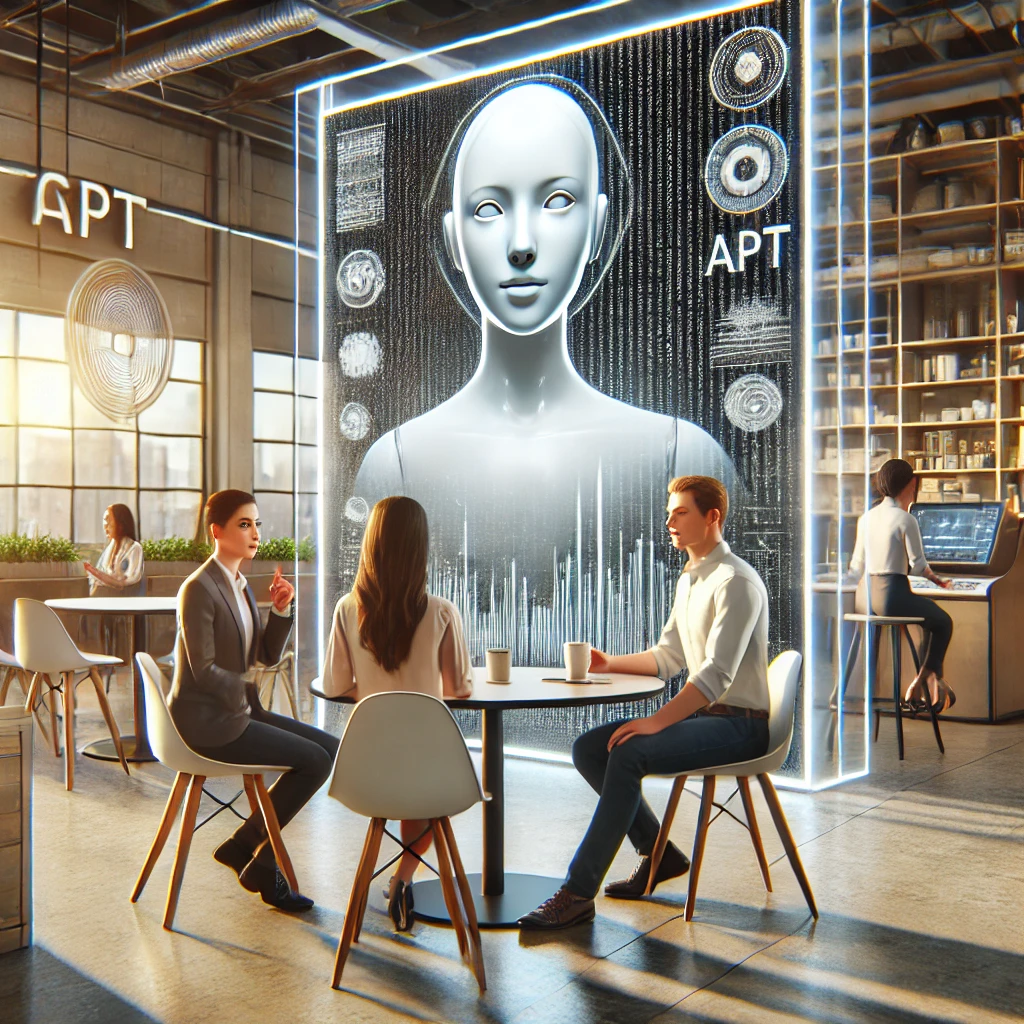Language is constantly evolving, reflecting cultural shifts, technological advancements, and changes in human communication. In recent years, artificial intelligence, particularly models like GPT (Generative Pre-trained Transformer), has begun to play a pivotal role in shaping how we communicate, creating new words and expressions, and even influencing popular slang. This article explores how GPT and other AI language models contribute to linguistic evolution, the implications of AI-generated language, and what the future holds for human communication in an AI-driven world.
The Influence of AI on Language Evolution
Language is a living entity, continuously changing to accommodate new ideas, technologies, and cultural phenomena. AI, particularly language models like GPT, accelerates this evolution by generating new words, phrases, and idioms that quickly enter mainstream usage. By analyzing massive amounts of text from the internet, social media, and digital publications, GPT not only learns existing language patterns but also synthesizes novel expressions that resonate with users.
One of the most significant ways AI influences language is through social media. GPT-powered chatbots and content generators create posts, memes, and hashtags that shape digital conversations. These AI-generated terms often become popular slang, quickly spreading across online communities and even making their way into everyday speech. For example, AI-generated abbreviations and neologisms are increasingly common in texting and messaging platforms, reflecting the fast-paced nature of digital communication.
AI-Generated Words and Slang
GPT and similar models are capable of creating entirely new words and expressions, many of which are adopted by online communities. This phenomenon is particularly evident in meme culture, where humor and wordplay are highly valued. By analyzing linguistic patterns and cultural references, AI generates catchy phrases and word combinations that resonate with users, rapidly evolving into slang.
In addition to memes, AI influences slang through voice assistants and chatbots, which often incorporate informal language to create a more relatable and conversational experience. For example, virtual assistants like Siri and Alexa now use colloquial language and even humor in their interactions, contributing to the spread of new expressions and casual speech patterns.
Moreover, AI language models are increasingly used in creative writing, leading to the emergence of novel narrative styles and experimental language. Writers and content creators utilize AI-generated text to inspire new genres of literature, poetry, and digital storytelling, further influencing linguistic trends.
Impact on Multilingualism and Cross-Cultural Communication
GPT’s influence on language is not limited to English. By processing multilingual datasets, AI models generate new words and phrases across different languages, facilitating cross-cultural communication. AI-driven translation tools, such as Google Translate, have improved significantly, allowing users to communicate across language barriers more effectively than ever before.
This enhanced cross-cultural interaction contributes to the blending of languages, leading to the creation of hybrid words and expressions. For example, English words are increasingly integrated into other languages, influenced by global digital communication. Conversely, non-English terms, particularly from pop culture and social media, are becoming more common in English-speaking communities, enriching the language with new cultural references.
Language Adaptation and Cultural Sensitivity
One of the most intriguing aspects of GPT is its ability to adapt to cultural contexts and linguistic nuances. By learning from diverse data sources, AI models understand regional dialects, slang, and idiomatic expressions, enabling more accurate and contextually relevant communication. This cultural sensitivity enhances user experience, especially in customer service, virtual assistants, and social media interactions.
However, this adaptability raises ethical questions about cultural appropriation and the potential loss of linguistic diversity. As AI models learn from mainstream sources, minority languages and dialects risk being underrepresented or misrepresented, potentially contributing to linguistic homogenization. Developers must ensure that AI systems are trained on diverse datasets to preserve cultural and linguistic richness.
Challenges and Ethical Considerations
While GPT’s influence on language evolution is undeniable, it also presents challenges and ethical concerns. One major issue is the propagation of misinformation and harmful language. AI models learn from the internet, which includes biased, offensive, or inaccurate content. If not properly filtered, AI-generated text can perpetuate stereotypes, misinformation, and hate speech, impacting public discourse and cultural norms.
Moreover, the rapid adoption of AI-generated language raises questions about authorship and originality. As AI becomes more involved in content creation, distinguishing between human and AI-generated text becomes increasingly difficult, challenging traditional notions of creativity and intellectual property.
Another ethical consideration is the manipulation of language for political or ideological purposes. AI-generated content, including fake news, deepfakes, and propaganda, can be weaponized to influence public opinion and spread misinformation, highlighting the need for transparency and accountability in AI language models.
The Future of Language and AI
As AI continues to advance, its impact on language and communication will only grow. Future iterations of GPT and other language models will likely become even more sophisticated, capable of generating highly nuanced and contextually aware text. This evolution will enable AI to participate in complex conversations, understand emotions, and engage in cultural discourse with unprecedented accuracy.
In the future, AI-generated language will play a significant role in education, entertainment, and social interactions, offering new ways to learn, create, and communicate. However, ensuring ethical use and cultural sensitivity will be crucial in shaping a positive and inclusive linguistic future.
Conclusion
GPT and other AI language models are reshaping the way we communicate, influencing linguistic evolution, and introducing new words, expressions, and slang. By analyzing vast amounts of digital content, AI not only learns from existing language patterns but also generates novel phrases that resonate with users, reflecting cultural shifts and societal trends. However, this influence comes with ethical challenges, including bias, misinformation, and cultural sensitivity.
As AI continues to evolve, its impact on language will deepen, transforming how we express ideas, share stories, and connect with one another. By understanding the dynamics of AI-driven linguistic evolution, we can navigate the opportunities and challenges of this digital era, embracing a future where language is more dynamic, inclusive, and interconnected than ever before.
AI and Linguistic Evolution: A New Chapter in Human Communication



I hope that autonomous AI assistants will appear soon!
totally, this is gonna be a gamchanger for disabled folks! 🙏
ai is changing language… Its scare💀
our language was getting better and better with ai😃👍
yeah, ais gonna do all our thinkin soon?
AIs have a huge “garbage content” problem right now… are we sure we want them influencing how we talk? 🤔
by the way this garbage impossible to delete in LLMs
I agree wit the dude up top… I don’t be wantin’ us to sound like robot 👎
new slang poppin up daily lol… some extent its even scary.
hah sometimes i dont understand my little brother😅
idk, GPT changin slang feels weird 👎 kinda forced ngl
Welp, it is what it is…¯\_(ツ)_/¯